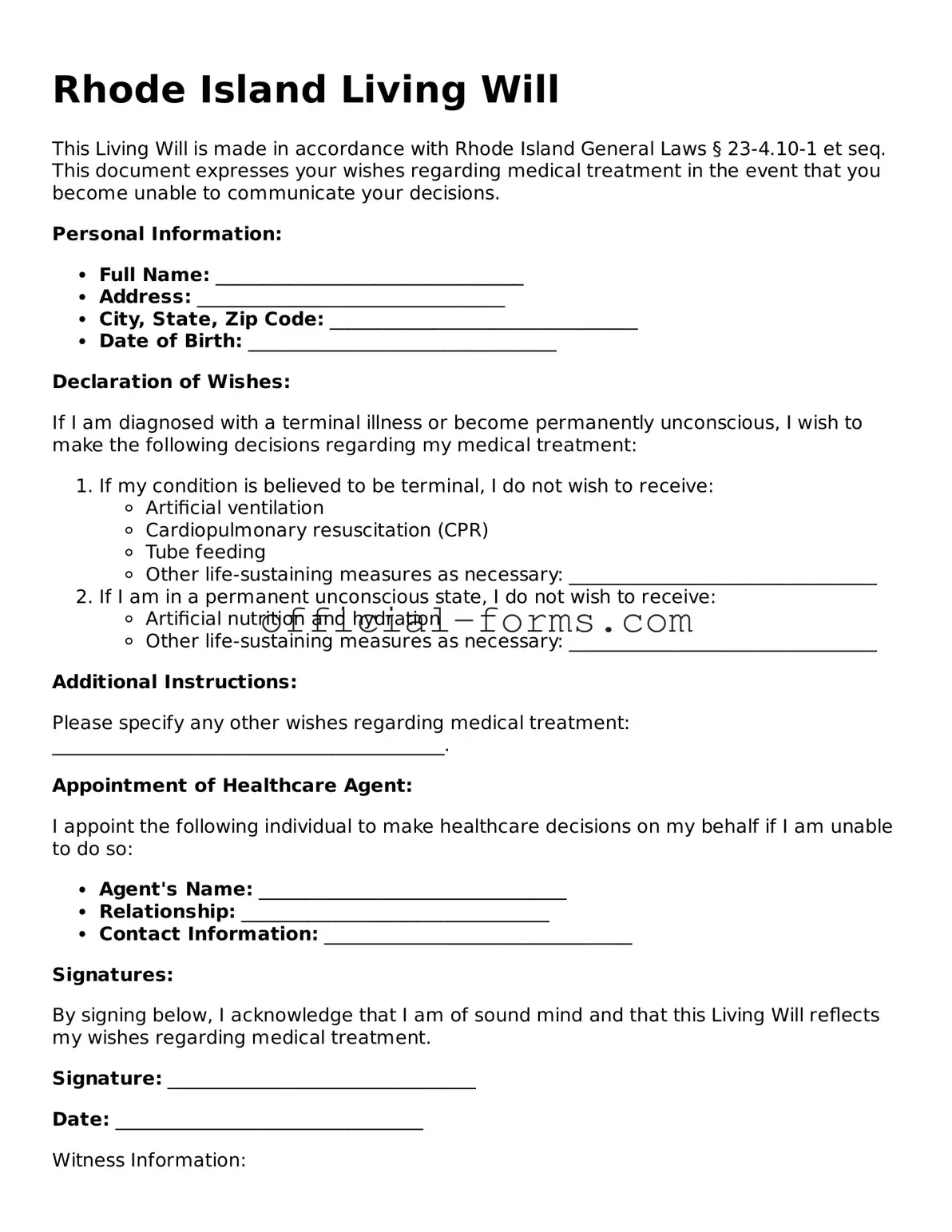Filling out a Rhode Island Living Will form is a crucial step in ensuring that your healthcare wishes are respected when you cannot communicate them yourself. However, individuals often make common mistakes that can lead to confusion or misinterpretation of their intentions. Understanding these pitfalls can help ensure that the document accurately reflects your desires.
One frequent mistake is not being specific enough about the types of medical treatment you do or do not want. For instance, simply stating "I do not want life support" may leave room for interpretation. It is essential to clearly outline which specific treatments you wish to refuse, such as resuscitation, mechanical ventilation, or tube feeding. This clarity helps healthcare providers make decisions that align with your wishes.
Another common error is failing to sign the document correctly. Rhode Island law requires that the Living Will be signed by the individual creating it. Additionally, it must be witnessed by two individuals who are not related to you or beneficiaries of your estate. Neglecting to follow these requirements can render the document invalid.
People also often overlook the importance of discussing their Living Will with family members and healthcare proxies. Without these conversations, loved ones may be unaware of your wishes, leading to potential conflicts or decisions that do not reflect your intentions. Open dialogue can provide clarity and peace of mind for everyone involved.
Additionally, individuals sometimes forget to update their Living Will as their circumstances or preferences change. Life events such as marriage, divorce, or the diagnosis of a serious illness can impact your healthcare decisions. Regularly reviewing and, if necessary, revising your Living Will ensures that it remains a true reflection of your current wishes.
Moreover, some people neglect to provide copies of their Living Will to relevant parties. It is crucial to share the document with your healthcare provider, family members, and anyone designated as your healthcare proxy. Without access to the document, those making decisions on your behalf may not be aware of your preferences.
Lastly, many individuals do not take the time to understand the legal implications of their Living Will. While it is designed to express your wishes, it is essential to recognize how it interacts with other legal documents, such as a durable power of attorney for healthcare. A comprehensive understanding can help ensure that all your legal documents work together harmoniously.

